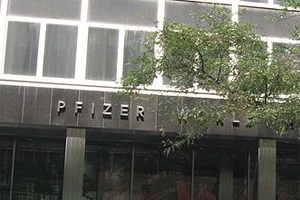 Pfizer has paid $87.5m upfront for a piece of AM-Pharma, Netherlands-based company developing a drug for sepsis-related acute kidney injury (AKI).
Pfizer has paid $87.5m upfront for a piece of AM-Pharma, Netherlands-based company developing a drug for sepsis-related acute kidney injury (AKI).
In doing so, Pfizer joins a growing list of pharma companies who have tried to develop a therapy for sepsis, which has seen off dozens of development candidate over the years with no products on the market.
Pfizer could also decide to take complete control of AM-Pharma under the terms of the deal – provided an ongoing phase II trial of the company’s lead candidate reCAP is successful. Results are due in the latter half of next year.
All told, the US pharma major could pay up to $512.5m if reCAP – a recombinant version of human alkaline phosphatase – or any other product resulting from the collaboration reaches the market.
While sepsis has been a tough nut to crack, the records could be massive. Sepsis-related AKI kills around 700,000 people each year in the EU, US and Japan and is typically caused by bacterial blood infections, often acquired within hospitals. It has a 35% mortality rate, rising to around 80% if kidney failure is severe.
The disease occurs in as many as 4% of hospital admissions and up to 40% of admissions to intensive care units but at the cases can only be managed with supportive care such as dialysis.
AM-Pharma is in the midst of a 290-patient adaptive study of reCAP in sepsis-associated AKI that will try to demonstrate that the drug is safe and can improve kidney function. The first phase of the trial is determining the best dose of reCAP, with a second phase comparing that dose with placebo on creatinine clearance, a biomarker for kidney function, as well as the need for dialysis.
reCAP is thought to work by reducing inflammation and detoxifying endotoxins produced during sepsis, as well as mopping up energy-rich ATP molecule release during cellular stress. ATP release drives inflammation and tissue damage but reCAP can convert it to adenosine, which is thought to have anti-inflammatory and tissue protective effects.
There have been an estimated 100 failed trials in sepsis and related conditions in the last couple of decades, with high-profile casualties including AstraZeneca/BGT’s CytoFab and Eisai’s eritoran, amongst others.
Eli Lilly did manage to get its Xigris (drotrecogin alfa) sepsis therapy onto the market for a short while but was forced to withdraw it from sale in 2011 after follow-up studies found no evidence of efficacy.
In addition to sepsis, reCAP could also have potential in other inflammatory conditions, including inflammatory bowel disease (IBD) and hypophosphatasia (HPP), a rare disease that affects infants and has a very high first-year mortality rate.




